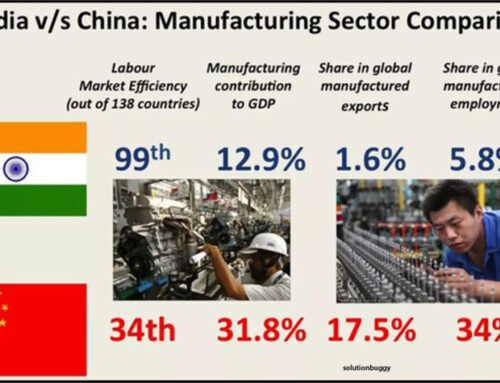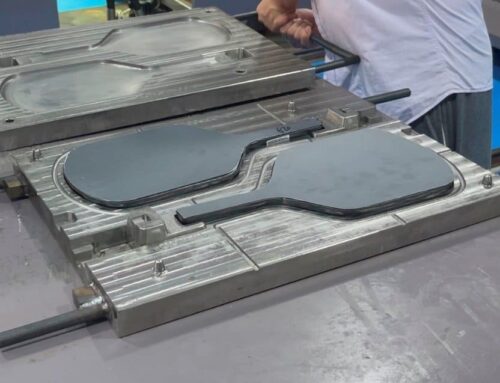The Importance of a Non-Disclosure Agreement
In the Pickleball Paddle industry, innovation in design, material selection, and manufacturing processes is the core of every company’s competitive edge. The Pickleball Paddle market has grown rapidly in recent years, with many companies continuously introducing new technologies and designs to stand out in a highly competitive landscape. In collaborations with suppliers, companies often need to share sensitive information such as product designs, material technologies, and manufacturing processes. This confidential information is crucial to maintaining a company’s market position, and any leakage could significantly impact future growth. Therefore, signing a Non-Disclosure Agreement (NDA) with suppliers is the first line of defense to ensure the security of a company’s sensitive information.
Confidentiality Risks in Supplier Partnerships
Suppliers play a crucial role in a company’s supply chain, especially in the production of Pickleball Paddles. Suppliers are directly involved in product manufacturing, from raw material supply to the execution of specific production processes. As a result, they often have access to large amounts of confidential information, including purchase prices for raw materials, design specifications, and manufacturing technologies. If this information is leaked, it can cause financial losses for the company and may result in a loss of market share, or even rapid imitation by competitors. Therefore, signing an NDA is essential to any company’s risk management strategy.
Understanding the Core Elements of a Non-Disclosure Agreement
Key Provisions of a Non-Disclosure Agreement
In the Pickleball Paddle industry, the core provisions of an NDA focus on the definition of confidential information, the responsibilities and obligations of both parties, and the penalties for breach of contract. First, the NDA must clearly define what constitutes “confidential information.” For Pickleball Paddle companies, this could include product design blueprints, specific material formulations, unique manufacturing processes, supply chain management strategies, and market analysis data. Second, once suppliers receive this information, they are obligated to maintain confidentiality according to the terms of the agreement and are prohibited from disclosing it to third parties or using it without authorization. Lastly, the NDA should clearly outline the consequences of breach, including compensation and legal repercussions, ensuring both parties are held accountable under the law.
Legal Basis for Information Protection
The legal foundation of an NDA typically stems from contract law and intellectual property law. Although laws regarding information protection vary from country to country, the basic principle remains the same: once both parties have signed the NDA, its terms become legally binding. If a supplier breaches the agreement, the company can seek compensation and hold the supplier accountable through legal means. In the Pickleball Paddle industry, where product innovation and technical superiority are critical assets, companies must ensure the legality and enforceability of their NDAs to protect their commercial interests as fully as possible.
Difference Between a Non-Disclosure Agreement and Non-Compete Clause
Although NDAs and non-compete clauses have similar purposes in protecting a company’s interests, they differ in focus. NDAs primarily prevent suppliers from disclosing or misusing the company’s confidential information, while non-compete clauses further restrict suppliers from engaging in competitive business activities after the collaboration ends. In the Pickleball Paddle industry, non-compete clauses can prevent suppliers from collaborating with competitors or producing similar products using proprietary technologies, thus safeguarding the company’s market position. The combination of both agreements can provide comprehensive protection for the company’s business interests.
Drafting Clear Confidentiality Clauses
Defining the Scope and Details of Confidential Information
To avoid misinterpretation, Pickleball Paddle companies must clearly define what constitutes “confidential information” in their NDAs. Typically, confidential information includes but is not limited to the following:
- Product Design Blueprints: The shape, weight distribution, and material composition of the paddles are the company’s core competitive edge and reflect its uniqueness in the market.
- Manufacturing Processes and Technology: The production of Pickleball Paddles involves multiple technical steps, such as thermoforming technology and surface treatments (e.g., T700 carbon fiber or 18K 3D treatments), all of which represent the company’s core technology.
- Raw Material Information: Including details about key material selections, the suppliers of specific raw materials, and purchase prices.
- Market and Sales Data: A company’s sales strategies, target market analysis, and client lists also constitute critical confidential business information.
By clearly outlining the scope of confidential information, companies can effectively prevent vague usage of the information and ensure that suppliers do not use the data for unauthorized purposes.
Permissions and Restrictions on Information Sharing
Permissions and restrictions on information sharing are essential parts of the NDA. Pickleball Paddle companies should specify under what conditions suppliers may access confidential information and set strict access controls. For example, highly sensitive information should only be accessible to senior management or designated technical teams within the supplier’s organization, and these individuals should also sign personal NDAs. Additionally, companies can restrict the methods of information transmission, such as only allowing encrypted emails or secure platforms to transmit confidential data, reducing the risk of interception during transmission.
Duration of Agreement and Timeliness of Information Protection
The duration of the NDA is another critical factor that companies must consider. In the Pickleball Paddle industry, product designs and technology evolve quickly, and companies need to ensure that their NDAs provide adequate protection for information during the period when it is most sensitive. Typically, companies specify that suppliers must maintain confidentiality for several years (e.g., 3 to 5 years) after the end of the collaboration, ensuring that sensitive information is protected even after the partnership ends. Additionally, companies may include dynamic clauses in the agreement, allowing periodic updates as projects progress or market conditions change.
Negotiating Key Terms in the Non-Disclosure Agreement
Negotiating the Rights and Obligations of Both Parties
When negotiating an NDA, Pickleball Paddle companies must clearly outline the rights and obligations of both parties. The company needs to ensure that the definition of confidential information is clear and legally enforceable while also specifying the scope within which the supplier can use that information. Additionally, the company should establish specific liability clauses to ensure that the supplier takes full responsibility for any unauthorized disclosure or misuse of information. Through thorough discussions of these terms during negotiations, the company can better protect its interests.
Protecting Core Business Interests During Negotiations
To protect the company’s core business interests, Pickleball Paddle companies should focus on several key areas during negotiations: First, limit the scope of the supplier’s use of confidential information, ensuring it is only used to fulfill contractual obligations. Second, restrict the supplier from using confidential information for competitive business purposes for a certain period after the collaboration ends. Additionally, the company can introduce penalty mechanisms during negotiations to ensure compensation if the supplier breaches the agreement.
Resolving Disputes Over Contract Terms
Disagreements are inevitable in the process of negotiating NDAs. Therefore, companies should include clear dispute resolution mechanisms in their agreements. For example, Pickleball Paddle companies may choose arbitration or mediation to resolve disputes, avoiding the high costs and time associated with litigation. Additionally, companies can pre-determine jurisdiction or governing laws within the NDA, ensuring disputes can be resolved efficiently if they arise.
Ensuring the Agreement Complies with Local Laws and Regulations
Legal Variations Across Different Jurisdictions
When suppliers are located in different countries or regions, Pickleball Paddle companies need to be aware of the varying legal requirements for NDAs across jurisdictions. For example, in some countries, NDAs may need to be notarized or signed in a specific manner to be legally valid. Furthermore, each country may have its own set of information protection laws, so companies must ensure that the NDA complies with local legal requirements to avoid unenforceable agreements.
Ensuring the Legality and Enforceability of the Agreement
To ensure that the NDA is legally enforceable, companies should engage professional legal counsel to review the agreement. Legal advisors can help identify potential loopholes and ensure that all clauses in the agreement are enforceable. For instance, companies can include jurisdiction-specific clauses and explicitly state which courts or governing bodies will have authority in case of disputes. This can effectively prevent legal conflicts arising from jurisdictional differences, especially in international collaborations.
Handling NDAs with International Suppliers
When working with international suppliers, Pickleball Paddle companies should pay special attention to the issue of applicable laws and jurisdiction. Companies can choose to use international arbitration mechanisms or specify the application of a particular country’s laws in the NDA to resolve disputes. Additionally, companies must ensure that international suppliers fully understand and agree to all terms in the NDA, using multilingual versions to avoid any ambiguity in translation.
Enforcing and Monitoring the Agreement After Signing
Establishing an Enforcement Mechanism for the NDA
Enforcement of an NDA does not solely rely on the supplier’s good faith; Pickleball Paddle companies must also establish strict enforcement mechanisms. Companies can regularly audit and monitor the supplier’s compliance with the confidentiality terms. For example, using encryption technologies and specialized file transfer platforms can monitor information sharing and prevent unauthorized access. Moreover, companies can set up internal or third-party audit mechanisms to periodically review the supplier’s adherence to the NDA.
Monitoring Supplier Compliance and Auditing Mechanisms
During the collaboration, Pickleball Paddle companies can use auditing or monitoring systems to oversee the supplier’s compliance with the NDA. Companies should regularly review the supplier’s confidentiality measures to ensure they meet the requirements outlined in the agreement. For instance, companies can conduct surprise inspections or request regular compliance reports from the supplier to ensure that all information protection measures are being implemented. Additionally, companies can provide confidentiality training to the supplier’s employees to ensure they fully understand their confidentiality obligations.
Responding to Potential NDA Breach Behaviors
If a supplier is found to have violated the terms of the NDA, companies must take immediate legal action. Pickleball Paddle companies can seek compensation according to the penalty clauses in the agreement and pursue legal accountability. Furthermore, if a breach is discovered, companies should immediately suspend cooperation with the supplier and take measures to prevent further information leaks. For instance, companies can use technological solutions to lock or destroy shared confidential information, mitigating potential damage.
Addressing Information Leakage Risks
Responding to Information Leakage
If a company discovers information leakage, the first step is to determine the scope and cause of the breach. Pickleball Paddle companies should quickly take action to notify relevant parties and launch an investigation. The company should also immediately demand that the supplier cease using or distributing any confidential information and take legal action based on the NDA’s provisions. Additionally, companies should establish an emergency plan for information leaks to swiftly contain the situation and minimize damage.
Holding Suppliers Accountable for Breach of Contract
If a supplier is confirmed to have violated the NDA, Pickleball Paddle companies can pursue accountability according to the breach of contract clauses within the agreement. Generally, companies can demand compensation from the supplier for any financial losses caused by the information leak. Moreover, companies can seek injunctions from courts to prevent the supplier from further using or distributing confidential information.
Preventing Future Information Leaks
To prevent future information leaks, companies should strengthen information protection measures in addition to the NDA. Pickleball Paddle companies can reduce the risk of information leaks by tightening access controls, enhancing data encryption methods, and implementing stricter review systems for suppliers. Furthermore, companies should periodically review and update their NDAs to ensure that the terms remain relevant to current business needs and legal requirements.
Updating and Renewing the NDA
When to Update the NDA
NDAs are not static documents; Pickleball Paddle companies should periodically update their NDAs based on business development and market changes. For example, when a company develops new product designs or production technologies, the existing NDA may no longer be applicable, necessitating revisions. Additionally, if a supplier undergoes significant changes (e.g., mergers or acquisitions), the company should consider updating the NDA to ensure its continued effectiveness.
Managing Confidentiality Needs After Supplier Business Changes
Changes in the supplier’s business could impact its ability to fulfill the terms of the NDA. Pickleball Paddle companies should reassess the NDA’s applicability whenever the supplier undergoes business changes. For instance, if the supplier is acquired by another company, will the new company still be able to comply with the confidentiality clauses? Companies should include provisions in the NDA to address supplier business changes and require the signing of a new NDA if necessary.
Adjustments and New Clauses in NDA Renewals
During the renewal of an NDA, companies can adjust clauses based on past cooperation experiences. For example, companies can strengthen key provisions or introduce new penalties and compensation mechanisms depending on the actual circumstances. Moreover, companies should revise the NDA according to the latest legal requirements to ensure its continued legal enforceability.
Addressing Post-Termination Confidentiality Obligations
Information Protection Obligations After Termination of Cooperation
Even after the termination of cooperation, suppliers remain obligated to protect the company’s confidential information. Pickleball Paddle companies should explicitly state in the NDA that the supplier must immediately destroy or return all confidential information after the end of the collaboration, and they must not use the information for any other purpose. Additionally, companies should regularly check to ensure that suppliers comply with the information destruction clauses in the NDA to guarantee data security.
Ensuring Suppliers Destroy or Return Confidential Information
To ensure that suppliers properly handle confidential information after the collaboration ends, Pickleball Paddle companies can require suppliers to provide written confirmation that all confidential information has been destroyed or returned. Companies can also use third-party audits to verify that the supplier has fully complied with the information destruction requirements. Furthermore, companies can stipulate in the NDA that the supplier will be held legally responsible if they fail to meet these obligations.
Preventing Information Leaks After Termination of the Agreement
Even after the termination of cooperation, companies should continue to monitor suppliers to ensure they do not disclose or misuse confidential information. If any violation is detected, companies should immediately take legal action to protect their data. Additionally, companies can regularly assess the risk posed by suppliers after the termination of cooperation to ensure continued compliance with the NDA’s terms.
Conclusion
Ensuring Information Security in Supplier Collaborations
In the Pickleball Paddle industry, protecting a company’s confidential information is key to maintaining its market competitiveness. By signing comprehensive NDAs with suppliers, companies can significantly reduce the risk of information leakage and ensure the smooth progress of collaborations. An NDA is not just a legal document; it is an essential tool for companies to manage information security throughout the supply chain.
Long-Term Benefits of Efficiently Signing NDAs
Efficiently signing NDAs with suppliers not only protects the core interests of a company but also fosters a more stable and trusting relationship between the two parties. Through well-structured agreement clauses and strict enforcement mechanisms, companies can ensure that suppliers adhere to confidentiality obligations throughout the collaboration, enhancing mutual trust and cooperation efficiency.
Information Security Strategies in Supply Chain Management
Information security is critical in supply chain management. Pickleball Paddle companies should integrate NDAs into their supply chain management strategy, ensuring that information security is maintained at the highest level throughout collaborations with suppliers. By establishing comprehensive agreements and monitoring mechanisms, companies can effectively minimize the risk of information leaks and maintain their competitive advantage in the market.
The End about Mayvoci
1)Design:Over 100 paddle designs and photography service to assist start-up.
2)Professional:Focus on various of paddles manufacturing for 6 years
3)Quality:Strict quality management system to provide safety and satisfaction for customers
4)Amazon:Flexible comprehensive solution to make sure each Amazon seller is well cared.
5)Excellent Team:Experienced paddle experts & dynamic sales team give you 5-star service





